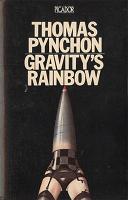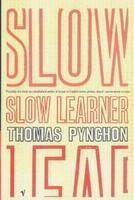 The Throne of Madness is the second book in Somtow Sucharitkul's Inquestor series. Two comments before we get going – firstly, despite the title of book & series (and the hideous covers, IMHO) – this is SF. Large, sweeping Space Opera. And it's a grand tale, and, within the boundaries of what I've read so far in my life, my preferred series. So, be warned, possible gushing ahead.
The Throne of Madness is the second book in Somtow Sucharitkul's Inquestor series. Two comments before we get going – firstly, despite the title of book & series (and the hideous covers, IMHO) – this is SF. Large, sweeping Space Opera. And it's a grand tale, and, within the boundaries of what I've read so far in my life, my preferred series. So, be warned, possible gushing ahead.
The story picks up shortly after the point where the first book in the series, The Light on the Sound, left off. Kelver (or Ton Keverell n'Davaren Toth, as he is now known with honorific, full name and clan) is now on Uran s'Varek, the heart of the dispersal of man and inquestral homeworld, to be trained as an Inquestor, and face the long pilgrimage and aloneness that precedes attainment of the rank.
Uran s'Varek sits at the centre of man's dispersal - both figuratively as the Inquest's homeworld, but also literally at the heart of the galaxy that man has spread across. It's a construct, pre-dating humanity (never mind the Inquest), 446 million km wide, with a black hole at its centre, and 1.8 million stars in its cubic parsec. It has an atmosphere thousands of km thick to scatter the light of all those stars. And once every century or so one of those stars falls, guided by the Thinkhives, through one of the open poles of Uran s'Varek and into the black hole at its heart. The power of the inquest stems from these 'Lightfalls' – and the simile of the black hole at the heart of the Inquest is heavily played upon.
The centre piece of the story is a Grand Game of Makrugh by Ton Karakael. Makrugh is a game played by Inquestors, playing for goods, favours, power, rank. It causes wars, and the frequent 'falling behind' (ie destruction) of planets and entire star systems. This is done with the best interests of mankind at mind – Inquestors hunt Utopias as they cannot be, with humans as fallen beings. Playing Makrugh prevents stagnation and propels history onwards (the opening gambit is "There is no history, and history there is"). The game is never fully explained, and despite all exposition never become entirely clear; I take this as a very clever way of saying that it's beyond our comprehension and frame of reference given we're not of the Inquest.
Generally Inquestors seem to be living the high life (some of the arrangements are reminiscent of Roman Emperor's parties), but all in the name of the 'greater compassion' – the 'smaller compassion' (friends, humans, planets etc) all goes up in the 'greater compassion' of the best of humankind (and/or the Inquest), which of course is just another way of saying 'the end justifies the means'. Although now, after 20'000 years, there are voices that query this central tenet of the Inquest – as Davaryush, Kelver's mentor, stated: "The Inquest falls" – and he sees Kelver as the agent to bring this fall about.
Enough about the contents – read them for yourself, it's worth tracking these books down!
The story, despite it's galaxy-wide, broad-brush story, consists of standard tropes. What makes the books special in my eyes is the way they are written, and tell the story. This starts with the overall poetical language (and the story is interspersed with songs, in several languages and scripts), the philosophical and emotional scope contained in what is happening (without being dwelt upon excessively), and the remarkable elegance and constraint shown by the author whilst dealing with topics and story lines which would have been saccharine and/or overblown in lesser hands. I love how the fascinating Universe this plays in always stays tantalizingly every so slightly out of the grasp of the reader, and makes one want to know more, more detail, more story, more background.
And I'm rather glad there's two more books to come!
Title: The Throne of Madness
Series: Inquestor
Series Number: 2/4
Author: Somtow Sucharitkul
Reviewer: Markus
Reviewer URL: http://thierstein.net
Publisher: Timescape Books/ Simon & Schuster
Publication Date: Oct 1983
Review Date: 100602
ISBN: 0671454390
Pages: 255
Format: Paperback
Topic: SF
Topic: Space Opera
More Somtow Sucharitkul












